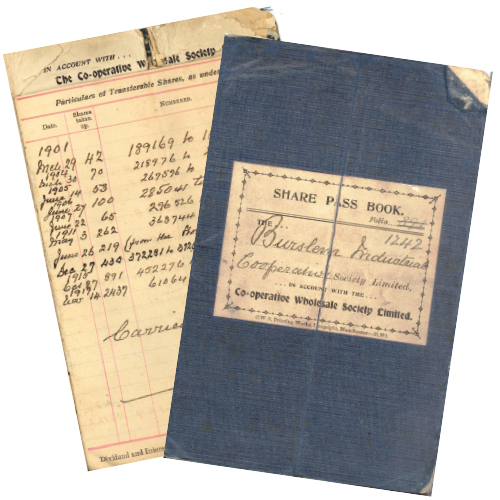Eight million members own at least £1 each in the Co-operative Group. But another portion of members, known as independent society members, own another £8m in shares.
There are 126 of these independent members, which are mostly other co-operatives, and together they have around 25% of the voting power at meetings. The remaining 75% is managed on behalf of the eight million members by regional boards. Independent members also have a separate election, with five directors being appointed to the 21-strong Group board.
According to the register of independent members, each society has a minimum share of £5 in the Group. The shares are non-withdrawable and are either recent investments or from their stake in the Co-operative Wholesale Society (CWS), which merged with Co-operative Retail Services in 2001 to form the Group.
Investments vary considerably, but together these independent members own shares worth over £8.5 million. The biggest shareholders are seven large retail co-ops: Central England (£2,674,810); Midcounties (£1,561,370); Scotmid (£1,252,305); Southern (£780,000); East of England (£756,855); Heart of England (£475,795); and Lincolnshire (£289,585). Each investor receives 4% interest per year.

But there are some surprises on the shareholder register, too. Of the 126 members, 37 are agricultural co-operatives, many of which appear to have become members decades ago, when the role of the Group (then CWS) was geared towards production.
There are also a number of community-owned shops, such as Airth Village Store and Eid Community Co-op, which joined when they began purchasing through CRTG. And there are approximately 10 international co-operatives, from countries including Argentina, China and Poland – although none have shares of more than £500.
The rules of the Group state that any co-operative is entitled to be a member, but due to the non-withdrawable nature of the shares, there is at least one private business on the register – M&F (Scotland), the limited company that came out of the demutualisation of the Musselburgh and Fisherrow Co-operative in 2007, still holds £56,000 of shares.
It is important to note that the rules of the Group mean these shareholdings are not used for voting purposes. Instead, voting power is calculated and distributed among the members according to purchases made through the Group. This includes those through the bulk-purchasing arm, Co-operative Retail Trading Group (CRTG), as well as goods through other collective-buying initiatives in funerals, pharmacy, petrol and energy.
There are a number of smaller co-ops that are members and buy a small proportion of goods through CRTG – Unicorn Grocery in south Manchester, for example, and some community-owned shops in Scotland. But the big purchasers are the large retail co-operatives listed above, meaning that of the 126 member societies, it is this small proportion of highly economically active member societies that have the biggest say.
So, which co-ops own and control a part of the Co-operative Group? In principle, it’s the 126 independent society members. In practice, it’s the large retail co-operatives that buy through CRTG.